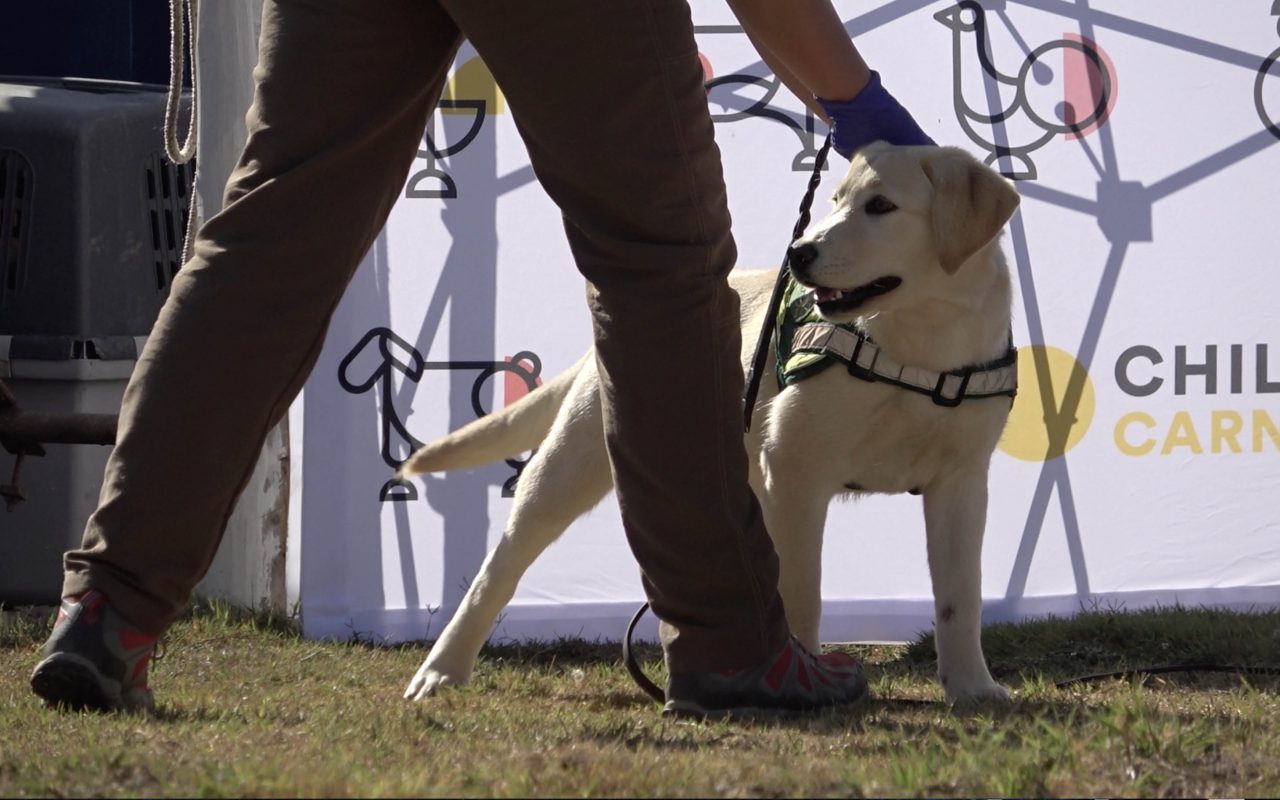
ChileCarne helps protect the country’s health asset, one of our main competitive advantages in foreign markets
The association, which represents companies in the white meat industry, is making a great contribution to preserve Chile’s health asset. It actively participates in a program to control raw materials at airports, ports, and border crossings by exhaustively reviewing materials that enter the country to keep domestic industry disease-free. Since late July, the Chilean white […]

The association, which represents companies in the white meat industry, is making a great contribution to preserve Chile’s health asset. It actively participates in a program to control raw materials at airports, ports, and border crossings by exhaustively reviewing materials that enter the country to keep domestic industry disease-free.
Since late July, the Chilean white meat producing and exporting industry has strengthened security and prevention measures by collaborating in a raw material control program with a comprehensive approach. It includes preventive and communicational measures at borders, rules to reinforce health measures at producing companies, as well as other initiatives.
ChileCarne, the Chilean Meat Exporters’ Association, works alongside the Agricultural and Livestock Service (SAG) to support inspections at airports, ports, and border crossings, including a canine brigade, inspection of seized products, footbaths (for footwear disinfection), X-ray machines, baggage control, analysis of seized products, and awareness campaigns for both travelers and border control teams.
“As an industry, we always work with leading public agencies in prevention, creating partnerships to work on important issues such as preventing any type of disease that may affect our animals from entering Chile. Likewise, ChileCarne and Asprocer (the pork producers trade association) prepared a list of rules for their members and work teams to reinforce prevention work at their farms, protecting our health asset at every stage of production,” said María Ignacia Apel, ChileCarne’s Head of Animal Health and Welfare.
Today, the association has high-level protocols and standards in place to respond to the international outbreak of African swine fever (ASF) thanks to improvements in identifying the disease as part of the Pig Health Surveillance Program.
In 2019, a working group was created with SAG and pork industry representatives, which identified the three main risk factors for the entry of this virus into our country: passengers and crew from infected areas (the highest risk); imported materials for pig feed; and waste from ships’ crews that might trade hazardous products.
“We currently work alongside the SAG in a technical committee that regularly monitors preventive actions to be taken and the gaps that we must correct. At the end of November, we will conduct a simulation to review the steps to follow in case any disease enters the country, and we will do it together with all the parties involved in prevention, updating emergency plans, and cementing our position in Latin America as a leader in protecting our health asset,” Apel added.
Protecting pork production is highly important, as it is the second most produced meat in Chile, with more than 574,000 tons cwe last year, representing 36% of the total meat produced nationally. It is the most exported meat in Chile, exceeding 465,000 tons cwe in 2020, which was 81% of production for that year. In addition, it is the third most consumed meat in Chile, exceeding 13 kilos per capita.
